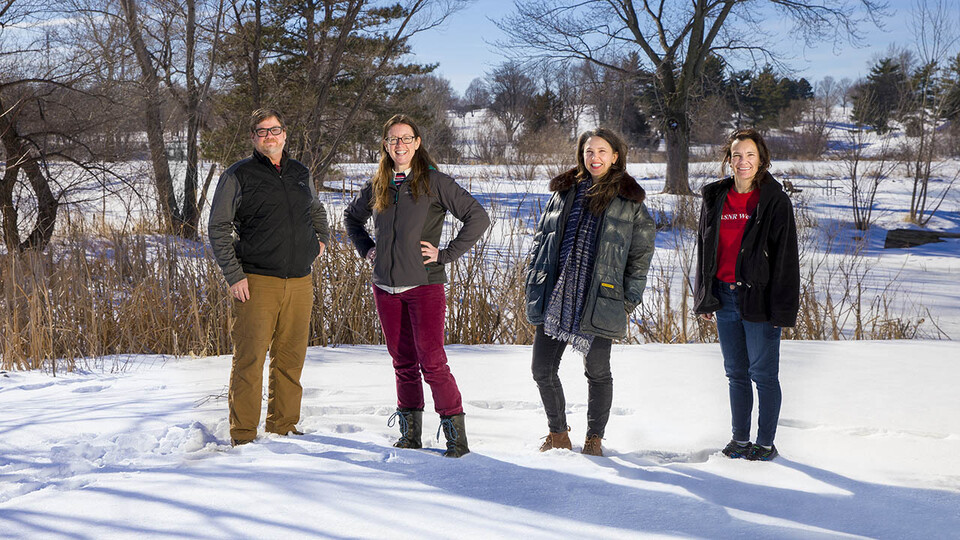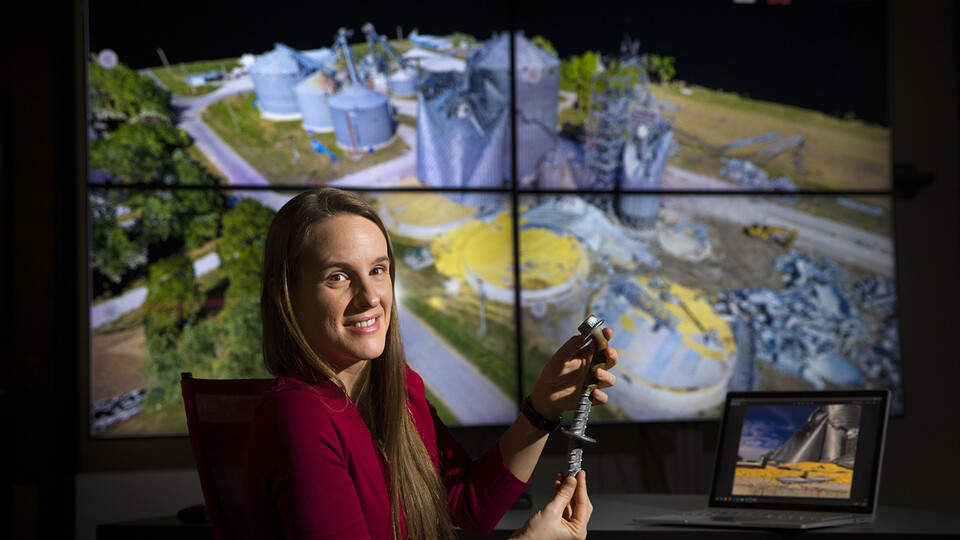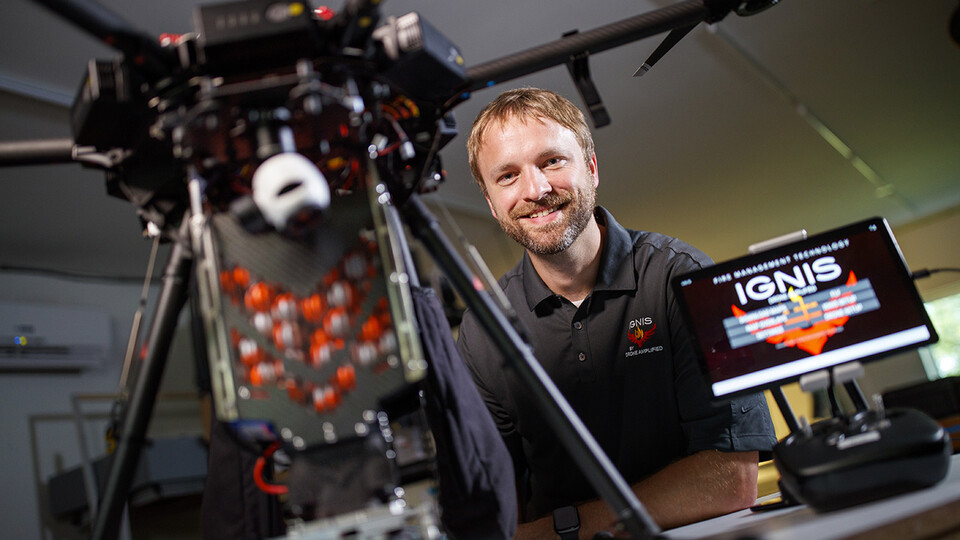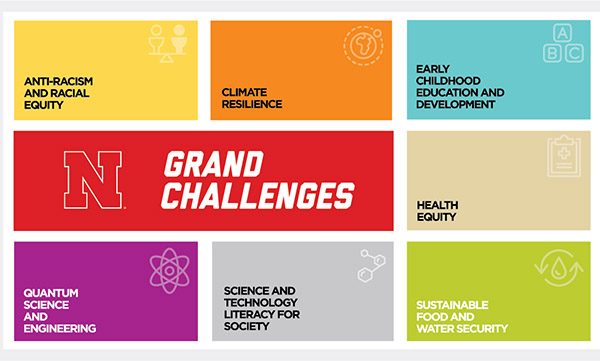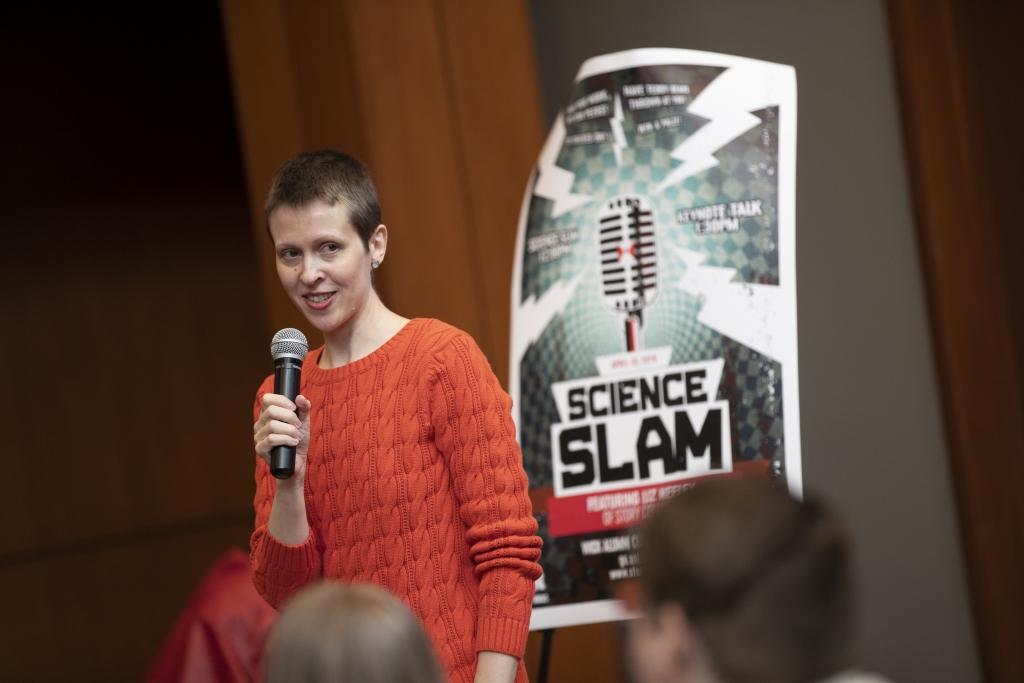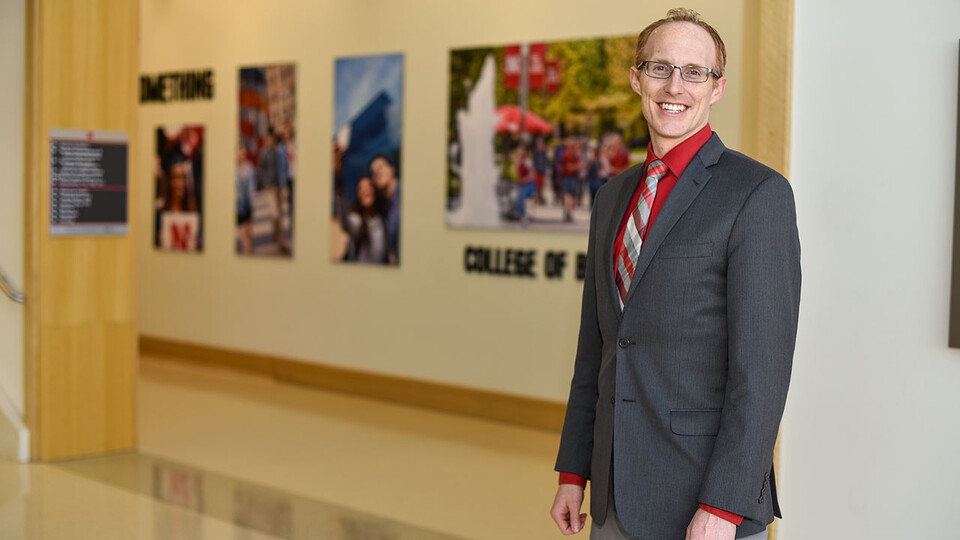In case you missed these stories highlighting research and creative activity at the University of Nebraska-Lincoln, the Office of Research and Economic Development’s communications team has compiled a roundup of some of the month’s top stories from research.unl.edu.
Husker team leading $6M project to study waterways’ changing ecology
Who: Jessica Corman, assistant professor of natural resources; Steven Thomas, professor of natural resources; Jennifer Clarke, professor of food science and technology; and Katie Anania, assistant professor of art history
What: Corman’s research team is creating a database that stores information on how human activity – such as burning fossil fuels, fertilizing crops and land development – impacts water quality, biodiversity and evolution. Anania and student scientists and artists are using their graphic communication expertise to develop effective visuals to help the public understand what’s happening in their waterways.
“What’s exciting and new is that we’re compiling a set of existing datasets that are located in different places or collected by different institutions and putting them together to ask broader-scale questions about ecology and evolution,” Corman said. “This is the first time this type of work is being done on a regional or national scale.”
Writer: Tiffany Lee, Office of Research and Economic Development
Husker researcher studies derecho impact with eye toward improving silo design
Who: Christine Wittich, assistant professor of civil and environmental engineering
What: A derecho swept through the Great Plains in August 2020, leaving behind a trail of destroyed silos and grain bins – hurting agricultural producers’ economic livelihood and disrupting global food production. Wittich has gathered data from weather reports, news articles and drone footage, searching for clues on how construction affected these buildings’ ability to weather the storm. Her work could influence new construction standards and lead to solutions for protecting existing farm structures.
“This was a huge event, but it didn’t receive much coverage, which was one of the huge motivators for me to study it,” Wittich said.
Writer: Dan Moser, Office of Research and Economic Development
Drone technology expert Detweiler named NAI senior member
Who: Carrick Detweiler, Susan J. Rosowski Associate Professor of computer science and engineering
What: Detweiler is only the second Nebraska faculty member to be named a National Academy of Inventors senior fellow. He co-founded and serves as CEO of the startup company Drone Amplified. The company is reducing fire danger by developing firefighting drones.
“It’s been gratifying to see our research, which started out as an idea in the NIMBUS Lab, evolve into a company and product that is now helping to save the lives of firefighters,” Detweiler said.
Writer: Tiffany Lee, Office of Research and Economic Development
Mouse house: Germ-free facility puts Nebraska U at forefront of microbiome research

Who: Amanda Ramer-Tait, associate professor of food science and technology, and director, Nebraska Gnotobiotic Mouse Program
What: A nearly 10,000-square-foot Gnotobiotic Mouse Facility opened in December, increasing Nebraska food scientists’ ability to study how food and nutrition affects the human gut microbiome, now recognized as a key indicator of overall health and well-being. As more Nebraska researchers began studying the link between nutrition and gut health, space in the old facility had become a premium, forcing Ramer-Tait to turn away new projects. Now, she said, “We’re the only food science department in the United States that has a gnotobiotic mouse program. You typically find these facilities at major medical schools.”
Writer: Scott Schrage, University Communication
Nearly 500 Huskers helped shape university’s Grand Challenges
Who: Nebraska faculty, staff and students
What: During the State of Our University address Feb. 15, Chancellor Ronnie Green announced seven grand challenges, areas of emphasis and focus for the next five years: anti-racism and racial equity; climate resilience; early childhood education and development; health equity; quantum science and engineering; science and technology literacy for society; and sustainable food and water security.
“I am tremendously excited at the work done across the campus to develop and hone these grand challenges,” Green said. “They are necessary work and distinct opportunities for our university to have an even greater defining impact for Nebraska and our world.”
Writer: Heidi Uhing, Office of Research and Economic Development
New role empowers Bosley to help boost the impact of Nebraska research
Who: Jocelyn Bosley, ORED research impact coordinator
What: In her new role as ORED’s research impact coordinator, Bosley is developing strategic ways to help Nebraska faculty broaden their engagement and impact through community partnerships.
“I’ve always been interested in science’s relationship with human values – why the research is worth doing,” Bosley said. “… I feel that if you’re doing the research, it better have some societal impacts. I hope to foster a culture that’s in alignment with that ideal.”
Writer: Tiffany Lee, Office of Research and Economic Development
Smith examines how abusive bosses ‘fake nice’ rather than make nice
Who: Troy Smith, assistant professor of management
What: Smith surveyed 79 supervisors, under anonymity, to study how abusive bosses perceive and respond to their past toxic behaviors, including publicly belittling or humiliating employees, losing their cool or gossiping. Unfortunately, Smith found, some leaders don’t feel remorse but recognize they tarnished their image by behaving badly. Those bosses may engage in public relations campaigns to restore their reputations – while skipping the step of making amends with their employees.
“In other words, they instrumentally fake nice rather than genuinely make nice as a means of repairing their social image,” Smith said.
Writer: Roger Simonsen, College of Business
Bullying Civil Engineering Drones Ecology Food Science Grand Challenges In the News Research Impacts Research News
